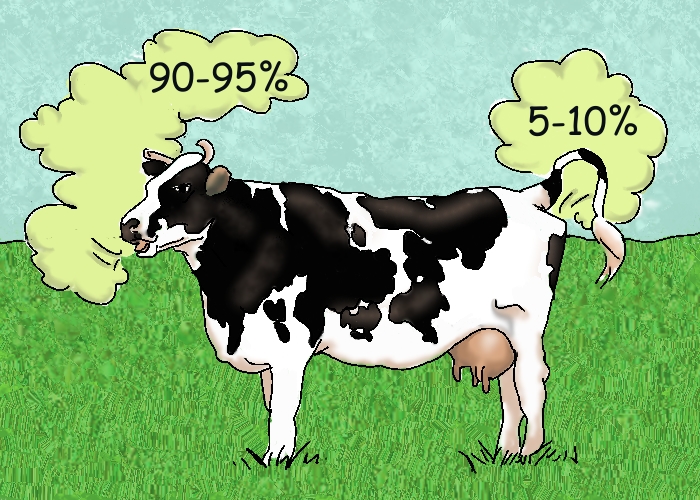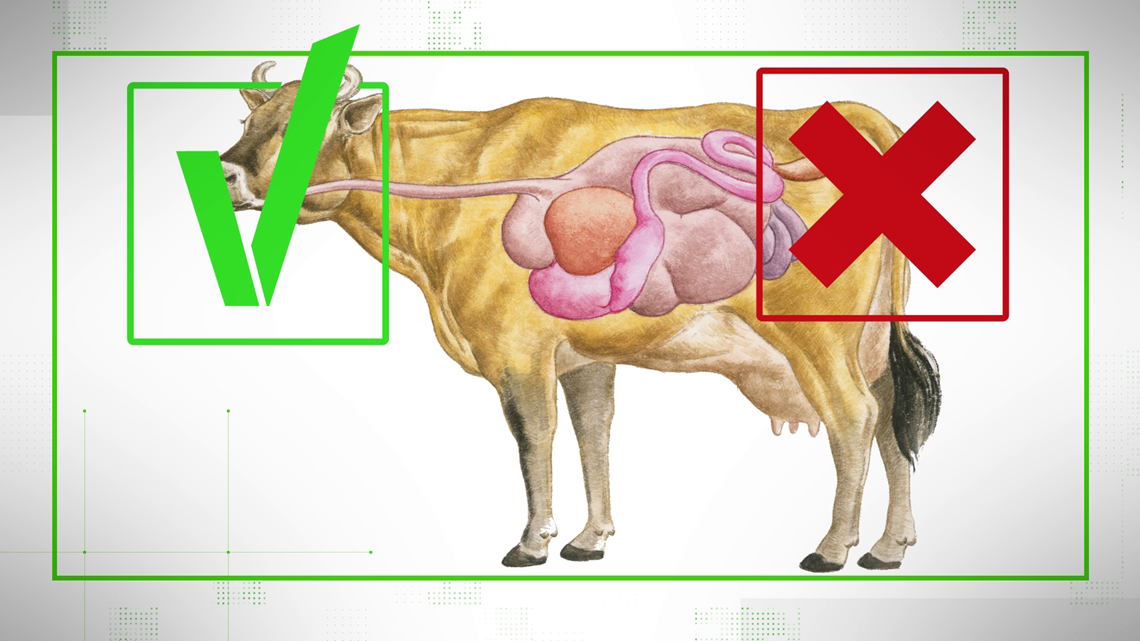Cow farts and burps could ruin the environment cows emit a variety of greenhouse gasses like methane and ammonia more potent than carbon dioxide they cause everything from global warming to acid rain

Cow Farts and Burps: The Environmental Threat you Didn’t Know About

Cows are undoubtedly iconic figures in the agricultural landscape. They provide us with milk, meat, and leather, contributing to our daily lives in numerous ways. However, there is a lesser-known fact about cows that has serious implications for the environment - their flatulence and burps are a significant source of greenhouse gases.
When we think of greenhouse gases, our minds often jump to carbon dioxide (CO2), the primary contributor to global warming. While CO2 is indeed a major concern, methane (CH4) and ammonia (NH3) emissions from cows are even more potent in terms of their warming potential. So much so that the environmental impact caused by cow farts and burps extends far beyond just global warming; it also contributes to issues such as acid rain.

Methane, the primary component of cow emissions, is approximately 25 times more effective at trapping heat in the atmosphere than carbon dioxide over a 100-year period. As cows digest their food, they produce significant amounts of methane through their burps. This potent greenhouse gas has a substantial warming effect on our climate, contributing to the phenomenon we know as global warming.
But that’s not all. The environmental impact doesn’t stop at global warming. The release of ammonia from cow urine has detrimental effects on ecosystems and contributes to the formation of acid rain. Ammonia, when combined with other pollutants in the atmosphere, can fall back to Earth as acid rain. This acidic rainfall damages forests, harms aquatic life, and even corrodes buildings and infrastructure.
The methane and ammonia emissions from cows are a significant concern from both an environmental and health perspective. They not only contribute to the ongoing climate crisis, but they also exacerbate air pollution, leading to respiratory issues and other health problems in humans.
To mitigate the environmental risks associated with cow farts and burps, several strategies have been proposed. One approach includes modifying cow diets to reduce methane production. By incorporating specific additives or adjusting feed compositions, researchers hope to diminish the amount of methane cows emit during digestion.
Another strategy involves developing technologies that can capture and store methane emissions from cow belches. By collecting and processing the methane before it is released into the atmosphere, we can significantly reduce its impact on global warming.
Furthermore, transitioning to more sustainable farming practices and promoting alternative sources of protein can help alleviate the environmental burden caused by livestock emissions.
In conclusion, while cow farts and burps may seem amusing on the surface, their impact on the environment is far from laughable. Methane and ammonia emissions from cows play a substantial role in global warming and the formation of acid rain. As we strive to combat climate change and mitigate its effects, it is crucial to address the lesser-known contributors like cow emissions. By implementing sustainable practices and investing in innovative solutions, we can protect our planet for future generations.
Sources:
Related Posts
Quick Links
Legal Stuff

